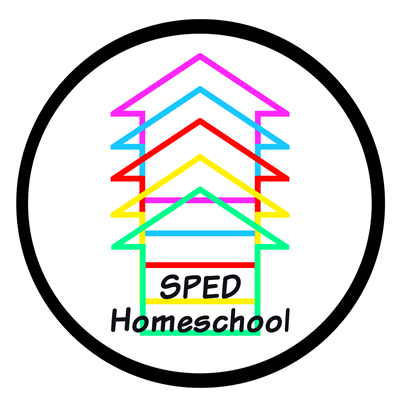IEP Template and Guide
Download your free homeschool IEP fillable Word template and guide with clickable resource links (see bottom of article for links).
Here also are some additional resources that will help you fill out each section of your student's IEP:
Here are a couple of articles to help you start figuring out your child’s present levels:
- https://spedhomeschool.com/
discovering-present-levels-to- create-iep-and-sep-goals/ - A real-life example of how to think about present levels. - https://spedhomeschool.com/4-
things-to-prepare-before- writing-your-childs-iep/ - More ideas on how to figure out your child’s present levels.
You may also need a little help understanding all the acronyms used in the special needs world. Here is a list to help you be “in the know.”
It is important that you complete the present levels to the best of your ability. Think of it like your child running a race. Present levels are the starting line and the end of the school year is the finish line. All you need to do is pick a place to start.
The fillable Homeschool IEP document gives you several areas to look at where your child may need additional support to function in school:
- transition (to adulthood after high school)
- behavior
- communication
- language learner
- physical needs
- assistive technology
- therapy integrations
Once you have determined your child's needs, then you see which academic subjects are affected. You may find that your child only needs a few accommodations or adaptions in one or two subject areas. With a global delay, you may find all subject areas are affected and that is okay.
Here are some articles to help you think about how you might be able to help your child:
- https://spedhomeschool.com/
pulling-together-your-iep- understanding-accommodations/ - Fourteen ways to accommodate your child - https://spedhomeschool.com/
writing-an-iep-accommodations- and-modifications/ - A great explanation of the difference between accommodations and modifications with examples of each.
Next up: writing goals.
Are you ready for the main event? All the work you've done to this point is to gather background information you need to create realistic, helpful goals for your child's education. Take your time with this step and write them well.
The key thing about goals is they need to be measurable. If you can't measure it, you can't track progress. The SPED Homeschool website has several articles on writing goals. Here is a sampling:
- https://spedhomeschool.com/
how-to-write-iep-goals-and- objectives/ - https://spedhomeschool.com/4-
steps-to-writing-fail-proof- behavior-goals-for-your-iep- plus-bonus-tips-for-success/ - https://spedhomeschool.com/
embracing-your-childs-new- goals/
DON'T MISS THIS:
How to Write a Homeschool IEP/SEP
An interview with Judi Munday. Judi is a wealth of information on this topic and has supported the homeschool community for decades. You will find all kind of nuggets of helpful information in this interview.
One more thing. If feel you need help writing goals, especially the first time, SPED Homeschool has connections with several consultants who can help you develop good, solid goals for your child. Just email our office at [email protected] and we will send you a list.
Can you see the finish line yet? Writing an IEP/SEP is a big task the first time around. After that, it gets much easier.
One thing that makes it easier is consistent goal tracking throughout the year. If things are going smoothly, you can track once a quarter, which is every 9 weeks.
If your child is not progressing on his or her goals, your tracking will let you know early in the year and you can adjust the goals to something more realistic for your child.
A word of advice: don't change things too often. In general, you should give any curriculum or plan you have a good 4-6 weeks. Even if it is not working well, you can identify what works and what doesn't so you know what kind of changes to make.
Here are some resources on goal tracking to help you out:
- https://spedhomeschool.com/
how-to-track-iep-goals/ - https://spedhomeschool.com/
mastering-the-art-of-record- keeping/ - Effective IEP Goal Tracking and Gaming Strategies (video)
Now you are ready to teach! SPED Homeschool has a wealth of resources to help you do that.
We look forward to continuing this journey with you!
The SPED Homeschool Team
Related Content





Comments